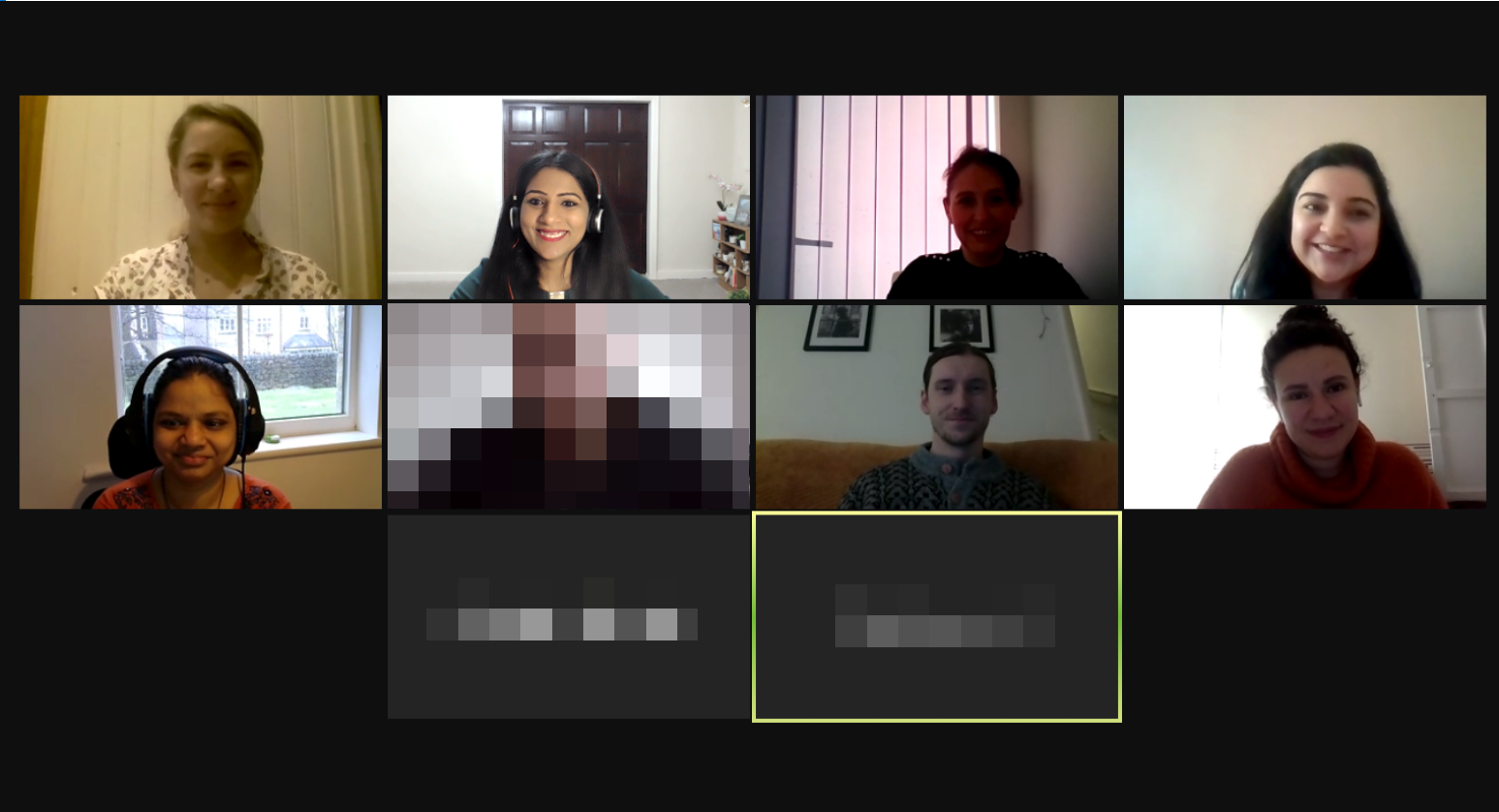
Five Top Tips for Landing a Tech Job in 2021

7 mins read
By Crispin Read - 22nd Jan 2021
Despite 2020 being full of unexpected challenges, the tech industry has continued to thrive. For anyone who has been made redundant or forced to adapt their career plans due to the ongoing restrictions of lockdown, now is the perfect time to learn a digital skill that will present a whole host of exciting new career opportunities.
In this article, I've detailed my five top tips to help you successfully pursue a rewarding new career in tech in 2021.
The challenges of 2020 came thick and fast, with many people sadly losing jobs, being put on furlough, and businesses everywhere struggling to make ends meet.
According to data from job search engine Adzuna and industry network Tech Nation, UK tech employment has increased by 11% in two years.
And that demand for developers and technical employees is set to continue increasing this year as businesses all over the country hold on to some of the new trends introduced during lockdown, such as remote working.
As we all continue to stay home, socially distance, and learn to work in innovative new ways, technology will have to keep evolving to facilitate this ‘new normal’. Businesses of all shapes and sizes are being forced to go digital, and as a result they're now on the lookout for new employees to help develop the apps and solutions they need.
Our Top Tips
With that in mind, now is the perfect time to start training for a job in tech, whether you're looking for a fresh start or a change of pace, or perhaps if your previous career has been compromised because of the pandemic.
In this article, I've shared five top tips to help you successfully pursue an exciting new career in tech in 2021.
1 - Find a specific area of interest
There are hundreds of different tech jobs out there these days. The industry is so vast and ever-expanding, so even if you train to become a developer there are a huge number of different languages and frameworks you could specialise in.
Make sure to do your research into the current tech landscape first and decide what role you’d be most interested in, and try to stay focused on that.
For example, if you’re an observant, curious person with good attention to detail, or have a particularly process-driven way of thinking, chances are you’d make a great software tester.
If you’re able to use creativity to solve problems, and have empathy for how other people think and feel, you’d probably be well suited to UX design.
Of course, it’s always important to remain open and flexible to learn new things, and the more skills you have the easier you’ll find it to progress in your career. But if you’re just getting started, it’s beneficial to aim for a specific area so you have a clear idea of what you’re trying to achieve in the short-term.
2 - Be aware of how your existing skills can apply
Something that many beginners don’t realise is that, even if you don’t have any past training or education in IT, you probably already have plenty of existing skills that can help you excel in a new tech role.
As mentioned in the previous tip, things like creativity and empathy may not seem obviously related to coding, but they’ll definitely be valuable if you can demonstrate how they translate over.
Below is a list of just some of the personal traits and skills which will be of interest to an employer when you’re applying for an entry-level or junior tech role:
- Effective communication
- Attention to detail
- Time management
- Prioritisation
- Relationship building
- Problem solving
- Teamwork and collaboration
Play to your strengths and be aware of your existing capabilities. Even if your experience hasn’t come from a tech background, you can find examples which can be transferred and applied to common situations in coding or software development.
Not only will this give you extra confidence in your own strength as a candidate, it will show your employers that you understand what they’re looking for and that you’ll be able to deliver what they need.
3 - Take care with your digital reputation and network
We’re all aware of how pervasive social media is today. Everyone has a voice online now, and many people are used to having open conversations with strangers in the public arena about anything from TV shows to politics. But it’s important to remember that everything you do and say online will stay there, and will be available for future employers and colleagues to see if they need to do a quick search into their applicants.
Your ‘personal branding’ and digital reputation are so important these days, even if you don’t feel like that’s something you have to worry about right now. Always be aware of how you’re presenting yourself to the world online.
On a more positive note, this works just as well as an opportunity to put yourself in a good position for future jobs, by actively engaging in online discussions relevant to your career interests. Contributing to online communities in a constructive way will get you noticed, build valuable relationships, and could even make the difference between you and a less proactive candidate when applying for a tech job.
You can share your opinions and ideas, which will demonstrate your passion for the industry. This is a great way to show you’re willing to go the extra mile, and it will suggest to employers you'll be fully invested in your role when you eventually begin work.
You can also use this to build a strong support network. For example, if you engage and connect with people in similar roles to the one you’re applying for, you could ask for useful advice or tips that they found useful back when they were in your position.

4 - Get yourself a 'side-hustle'
Lots of people these days have a personal project they work on in their own time, often without getting paid to do it. For example, building and running your own blog using a system like WordPress.
This is a great way to gain experience in the areas you’re looking to launch a new career in, before you actually get over the hurdle of landing a job.
This is so important these days for two reasons:
- Firstly, it’s a great story to discuss with potential employers, as it shows your own initiative, determination, and ability to work autonomously. It will give you examples of your skills, and you’ll be able to talk about what you learned, how you did it, and so on. This will probably be something you’re passionate about too, so it will also make the learning more interesting, enjoyable as a bonus for you.
- Secondly, it will give you learning and challenges to solve that you won’t face in training courses. These will be hands-on, real-world examples of problems you’ll have faced that you can show evidence of solving to future employers. For example, adding a Shopify store to your website and figuring out how to use it to sell products.
This could actually mean that, when it comes to a job interview, you’re able to really stand out from the crowd. You can show that you’re able to manage the same type of work that employers will be looking for without the incentive of getting paid to do it, which is an excellent way to boost your employability.
5 - Keep yourself constantly learning
With almost every IT job around today, you’ll find that you will always be learning on the job. Nothing ever stands still in tech. So, to get a job like that, you should try to demonstrate to employers that you’re someone who is actively learning all the time, and also show that you’re always looking ahead to what you’ll be learning next.
The key here is that it shouldn’t be seen as difficult or daunting because there are infinite resources available to do this, and most of them can be done for free. Don’t think that a learning or training activity has to come with a high cost to provide valuable learning for you.
This has become easier than ever in recent years, with a great deal of training now taking place remotely online. This means you can attend great courses without being limited by your location, and modern technology makes the experience seamless.
For example, here at The Coders Guild, we’re currently running a range of digital skills bootcamps open to people in Liverpool City Region and West Yorkshire, teaching 12 weeks of interactive learning in app development, UX, and software testing. These courses are all government-funded as a way of driving continued growth and optimisation of the tech sector in the UK, so they’re available to learners completely free.
You just have to make the effort to show employers that you’re keen to learn, and that you're taking responsibility to grow as a person and a candidate. Remember, you’ll need those same values to succeed when it comes to actually progressing through your career in tech.
As a bonus tip, have an actual plan for your learning mapped out, whether it’s over the next month or the next year. Set some realistic goals for yourself and make a list of all the training you want to take on while you’re job-hunting.
We’re Always Happy to Help
At The Coders Guild, we believe that digital skills training is the key to unlocking the full potential of the technology industry in the UK, so it’s important to us that even something as disruptive as a global pandemic doesn’t stop you pursuing a rewarding new career path.
Whether you’re in need of a new job following the misfortune of the past year, or just considering a career change, now is the perfect time to take advantage of the growing need for tech employees among UK businesses.
Following these five tips will help you boost your employability and give you a great chance of ensuring 2021 will be a year to remember. Of course, if you have any questions or need any more guidance, please don’t hesitate to get in touch with us directly and we’ll be happy to help.
Take Your First Step Today
It's our mission to ensure that tech education is as accessible as possible for everyone in the UK, regardless of your background or prior experience.
We have a wide range of free training courses, apprenticeship programmes, and plenty of other exciting opportunities for people of all ages and abilities. Check out our latest opportunities here:
